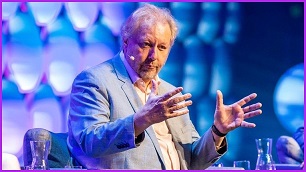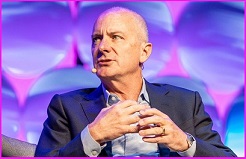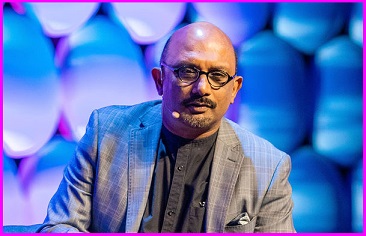Australia is experiencing an economic existential crisis and entrepreneurs need to be encouraged to build innovative global companies to break out of it, according to WiseTech founder and CEO Richard White.
Speaking at the ACS Reimagination Thought Leaders’ Summit in Melbourne on a panel about building a global technology business, White said that Australia is still too focused on traditional industries and is yet to fully embrace future industries.
“We’ve got an existential crisis,” White said at the event.
“We cannot rely upon mining to employ the future generations.
“The growth industries of the world are largely centred on tech and the conversation of turning an analogue economy into a digital economy.
“We as a society and governments have to recognise that the future of our country is not in shipping iron ore.
“We must turn our attention to the education of younger generations and reach right back to very early childhood and equalise the male-female bias.”

Richard White, WiseTech founder and CEO. Photo: Good Thanks Media
If Australia doesn’t begin to properly embrace tech and support start-ups, it will remain merely a consumer of new technologies, he said.
“We’re either going to be consumers of that, or producers and owners of that,” White said.
“It’s a binary choice. We either do it or we get it done to us.
“To build a future advanced economy that moves aggressively away from mining we need to build a powerful future innovation capability out of what is currently a very, very small part of our economy.”
This also requires a change in mindset from Australian investors to be more willing to take risks and back early-stage tech firms looking to take on the world, White said.
“We need to adjust a bit of our thinking in terms of technology investment,” he said. “When you talk to traditional investors they’re still thinking about mining and services and banking, but that’s not where any of the growth is.”
The panel, which included Nearmap CEO Rob Newman, Expert360 CEO Bridget Loudon and GHD Digital president Kumar Parakala, discussed their own experiences of taking their tech companies global and the difficulties they faced.

Rob Newman, CEO, Nearmap. Photo: Good Thanks Media
Australian companies need to be constantly looking to the future and disrupting themselves to stay ahead of the competition, Newman said.
“I fundamentally believe that if you’re going to build a great, sustainable company with a tech core, then you have to keep disrupting yourself,” he said.
“If we were to sit still for a year or two, we would be overtaken for sure. Unless we are investing heavily in our next generation platform we will be overtaken.”
Start-ups shouldn’t just view industry incumbents as competition, with the real allies and competitors sometimes being surprising, Loudon said.
“People who are players you would have traditionally considered competitors could be your strongest allies or partners if you get that play right,” she said.
“And businesses that you never would have thought about competing with are suddenly competing with you.”

Bridget Loudon, CEO, Expert360. Photo: Good Thanks Media
Expert360 recently secured a huge $500 million deal with Hudson which will see it helping the recruitment giant fill over 25,000 contractor roles over the next year.
This deal was just as much about helping Expert360’s existing users, Loudon said.
“For us as a marketplace it’s all about scale,” she said.
“Scale begets scale, begets scale. This was an opportunity to take a quarter of a million static CVs and bring them into our marketplace to deliver better services and outcomes, not just for Hudson but for us too.
“We’ll see lots more of those types of deals in the industry.”
For other Australian companies looking to expand aggressively overseas, it’ll always be more expensive and time-consuming than initially thought, she said.
“Don’t underestimate how complex going into international markets is,” Loudon said. “It adds many layers of complexity to the business. Whatever your global expansion plan is, multiply that investment by three, then you’re on the right track.”
Local start-ups need to be more willing to take risks in order to succeed on the global state, White said.

Kumar Parakala,president, GHD Digital. Photo: Good Thanks Media
“Australian companies are typically more risk averse than others and tend not to want to be exporting companies, particularly early on,” he said.
“There’s good reason to build a home market first, but as soon as you’ve got any scale there, you fundamentally have to go to the US and China and then mop up the rest of the world.
“It isn’t really the G20 anymore, it’s the G2. If you can’t make it in the US and in Europe, then it’s not a global product.”
Founders also need to be more willing to pivot and move fast, Parakala said.
“Lots of entrepreneurs have bright ideas but the biggest mistake they make is they don’t pivot when they need to pivot,” he said.
“They just want to tough it out, then it’s too late.
“Getting the timing right to pivot is absolutely critical.”










